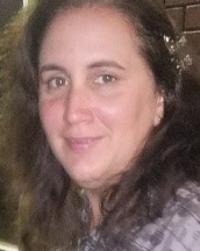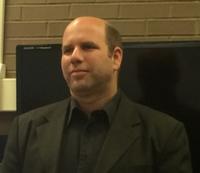LAC Main Seminar Series: US policy towards Cuba in the post-Cold War era: sanctions as a weapon of choice
Convener: Professor David Doyle
Speakers: Seida Barrera Rodríguez and Ernesto Domínguez López
To join online, please register in advance for this meeting:
https://us02web.zoom.us/meeting/register/tZUqdOCrrz0qH91yGNhhwuEap7Wftws...
After registering, you will receive a confirmation email containing information about joining the meeting.
The conflictive nature of the relation between Cuba and the United States has been a relevant component of the history of the Great Caribbean Basin, with implications beyond the region. The Cuban revolution of 1959 brought the conflict to the forefront, and integrated it into the Cold War. For Cuba, Washington´s policy towards the island has been the most important exogenous factor in its development for well over a century, a policy that has been openly hostile for the last 63 years. The collapse of Europe´s Eastern Block and the dissolution of the Soviet Union sent shockwaves around the globe, and change the international system deeply. Yet, the conflict between the US and Cuba remained acute.
We address Washington´s Cuba policy in the post-Cold War world, attempting to unravel the forces and factors driving its making. We present the key variables of that policy, and highlight the axes that articulate it in a coherent system. On that base, we address what constitute probably the most important –and yet often not fully understood- of those axes, the system of sanctions imposed by the US against Cuba. Our work has shown the dynamic character of what is called in Cuba blockade, and embargo in the US. We also found that no exhaustive detailed list of the sanctions had been put together by any specialised scholar or organization, thus hindering the ability to fully grasp their scope and depth. We deepen in the black lists, the most frequently used form of sanction of the period, and explore the composed impact of the system on Cuba´s economy and society.

Seida Barrera Rodríguez holds a PhD in Juridical Sciences (2018) and Bachelor in Law from the University of Havana (2004), both awarded summa cum laude. Full Professor and full researcher at the Center for Hemispheric and United States Studies, Universidad de La Habana (since 2019). Part time professor at the Universidad Agraria de La Habana, Mayabeque. Business consultant at the International Centre of Havana, subordinated to the Ministry of Higher Education.
She worked at the Center for the Study of Cuban Economy (CEEC), University of Havana; at the Centre for Psychological and Sociological Studies (CIPS), subordinated to the Ministry of Sciences, Technology and Environment; at the Center for Juridical Research (CIJ), subordinated to the Ministry of Justice, and as Municipal Public Prosecutor. She has advised local governments, cooperatives, micro and small enterprises, projects of local development, self-employees and natural persons on contracts, taxes, social responsibility, penal law, administrative law, domestic control law, intellectual property, housing and labour law.
Visiting scholar and visiting lecturer at several universities and academic institutions in Cuba, United States, France, Spain, Finland, Greece and the United Kingdom.
Her research fields are US sanctions on Cuba, US corporations, US-Cuba businesses, Cuban economic non-State actors. She has co-authored one book. She is author and co-author of 13 book chapters and 22 articles published in academic books and journals edited in Cuba, France, Italy, Spain, Brazil, Mexico, Argentina and Colombia. She has delivered or co-authored 40 papers, presented at academic conferences in Cuba and the United Kingdom.

Ernesto Domínguez López holds a PhD in Historical Sciences (2011), Master in Contemporary History (2008) and BA in History (2006) from the University of Havana, all degrees awarded summa cum laude. Studied Nuclear Physics (1995-2000). Full Professor at the Center for Hemispheric and United Studies (CEHSEU), University of Havana (since 2012). Coordinator of the US Study Group at CEHSEU (since 2015). Former Department Chair (2008-2010) and researcher (2006-2008) at the Center for European Studies.
Visiting professor, visiting scholar and visiting lecturer at several universities and academic institutions in Cuba, United States, Colombia, Argentina, France, United Kingdom, Spain, Finland, Greece and Germany. Domínguez López has published 65 articles and chapters in academic journals and books edited in Cuba, Mexico, Argentina, Colombia, United States, Germany, Italy, Great Britain and France. He has authored two books and co-edited other four. He has delivered or co-authored 65 papers presented at scientific conferences, colloquia and congresses in Cuba, Argentina, Germany, United Kingdom, Spain, Finland and the US.
Referee in academic journals published in Cuba, France, Italy and United Kingdom. Member of the Doctoral Committees in Historical Sciences and Political Sciences of the University of Havana. Creator and coordinator of the Master Program in US Studies and Hemispheric Geopolitics (CEHSEU, since 2017). Member of the Scientific Council of the University of Havana (since 2015). Former member of the National Doctoral Tribunals in Political Sciences (2013-2022), Historical Sciences (2018-2022) and Philosophical Sciences (2018-2022) (This structure was abolished in 2022). Former member of the Directive Board of the Cathedrae for the Study of Complexity (2010-2015) and the Commission for Scientific Degrees of the University of Havana (2015-2020).
His research interests include the study of post-industrial (knowledge) capitalism, US political system and processes, Cuba-US relations, international relations, political theory and theory of history. He has taught undergraduate and graduate level courses on subjects like Cuban history, Cuban foreign policy, Cuba-US relations, research methodology in social sciences, research methodology in non-linear systems, contemporary history, political economy, political sciences, US politics, international migrations, history of social sciences, history of systems of thinking, and theory of history.



